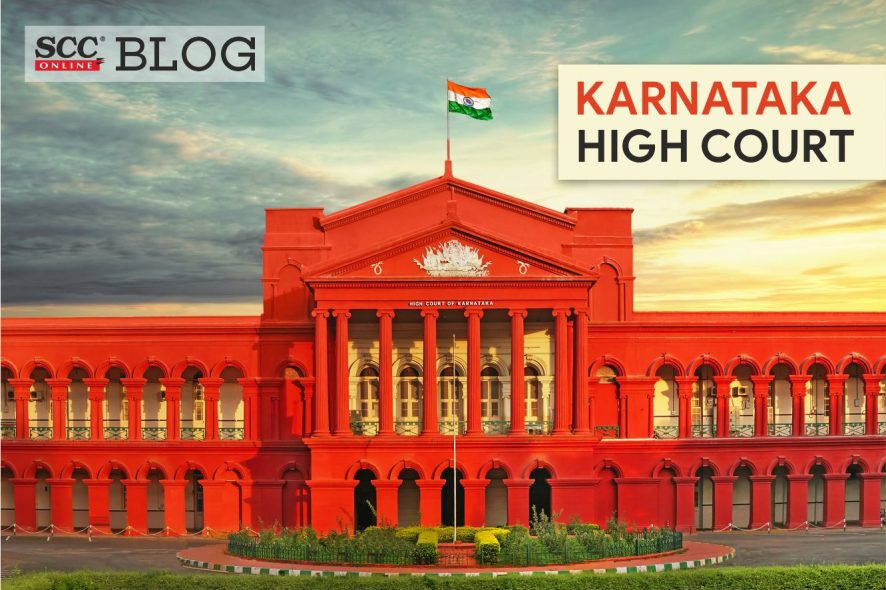Karnataka High Court: While deliberating over the instant petition seeking quashment of chargesheet filed against a “wellness therapist” under the provisions of Information and Technology Act, 2000 and Penal Code, 1860, the Bench of M. Nagaprasanna, J., observed that the mushrooming rise of so-called “wellness therapies” in the public domain have also given rise to pseudo-therapists who are but in reality “instagram influencers”. Expressing concern that pseudo-therapists of social media unbound by any ethical regulation, lure innocent people seeking genuine therapy and thus committing fraud upon them; the Court observed that it is high time that the Government frames some regulatory measure to check the rise of such therapies and therapists.
From Tinder to Therapy:
The case begins when the complainant came in contact with the petitioner via the dating app Tinder and began interacting frequently. It was during one of these interactions when the complainant claimed to be completely stressed and relayed the same to the petitioner, who then stated that she has an Instagram page called “Positivity-for-a-360-Life” and that she is a Wellness Therapist who advocates and promotes general well being of mind, body and soul.
The complainant, on the representation being made by the petitioner with regard to her qualification as a therapist started transferring amounts on class to class basis. After the end of the class, the complainant claimed to be satisfied of the class. The classes and transactions were done via Instagram. The new trajectory of the parties’ interactions went on even during the nationwide Covid-19 lockdowns. However, the things started to go south when the complainant expressed his desire to meet the petitioner in person. The complainant also started sending lewd messages and indecent pornographic contents in the petitioner’s inbox, as a consequence of which the petitioner blocked the complainant’s account.
After the blocking, the complainant started to investigate the veracity of the petitioner’s therapy and discovered that the petitioner had 15 such instagram profiles and other social media profiles. After this discovery, a complaint against the petitioner was registered for the offences of cheating and the offences under the Information Technology Act. The police upon completing their investigation filed a chargesheet which was challenged in the instant petition.
Contentions-
The counsel for the petitioner contended that the petitioner who is a wellness therapist is innocent of what is alleged against her and it is the complainant who approached the petitioner for his well being and after taking treatment, on being satisfied with every class, had voluntarily transferred the money.
It was also argued that the allegations against the petitioner have brought in because the petitioner did not yield to the lewd requests of the complainant. It was also contended that the dispute between the parties is purely a matter of contract between them.
Per contra, the complainant/respondent argued that it was not the complainant who approached the petitioner since the first message came from her. It was submitted that the petitioner represented that she is a wellness therapist and lured the complainant into getting the treatment and to transfer amounts close to Rs. 3,15,000; thus it was contended that the petitioner is a con-woman and cheated the complainant, therefore she must face a trial.
Observations and Decision:
-
Giving a considerate thought upon the contentions; perusing the facts of the case and the consent form between the parties, the Bench observed that it was claimed that the petitioner’s team of are baton bearers emphasizing on wellness of mind, body and soul; the form also states the complementary and alternative therapies like – expressive art therapy, picture perception, journal/journey therapy etc. It was noted that the instant case is related to psychosomatic therapy or the wellness therapy. The Court pointed out that despite the complainant having signed the consent form that does not mean that the petitioner can escape the clutches of law merely because the consent form has been signed.
-
The Court also pointed petitioner does not have any qualification to be in the field of any kind of wellness therapy. It was noted that the petitioner’s instagram/ web-page was self generated therefore this is a case where the petitioner without any substantial qualification, lures the customers into the web of her wellness therapy. The Court also noted the chats the between the parties clearly reveals that it was the petitioner who lured the complainant into getting the said wellness therapy. The Court observed that Section 415 of IPC mandates that if the accused has induced the victim or lured the victim into parting with any property with a dishonest intention at the inception, it becomes an ingredient for the offence of cheating. The chats would reveal that the petitioner had initially represented that she is a wellness therapist and her team would take care of the complainant. Without having any team or any qualification whatsoever, the web page was prima facie created to lure the complainant and others like him. Therefore, the offence of cheating comes clearly made out against the petitioner. Thus the Court was of the opinion that petitioner must be tried in order come clean of the charges levied against her.
-
Regarding the lewd messages sent in by the complainant to the petitioner, the Court noted that the crime has been registered with the concerned authorities and the same is pending.
-
Relying on Kaptan Singh v. State of Uttar Pradesh, (2021) 9 SCC 35, the Court noted that the instant case does not warrant the Court’s interference as the petitioner has not demonstrated by production of such unimpeachable evidence of sterling character for the Court to interject the proceedings in exercise of its jurisdiction under Section 482, CrPC.
-
With the afore-stated observations and findings, the Court dismissed the petition.
[Sanjana Fernandes v. State of Karnataka, 2022 SCC OnLine Kar 1543, decided on 02-09-2022]
Advocates who appeared in this case:
Amar Correa, Advocate for the petitioner
K.S. Abhijita, HCGP for R1
S. Diraviam Dinesh, Advocate for R2
*Sucheta Sarkar, Editorial Assistant has prepared this brief.







